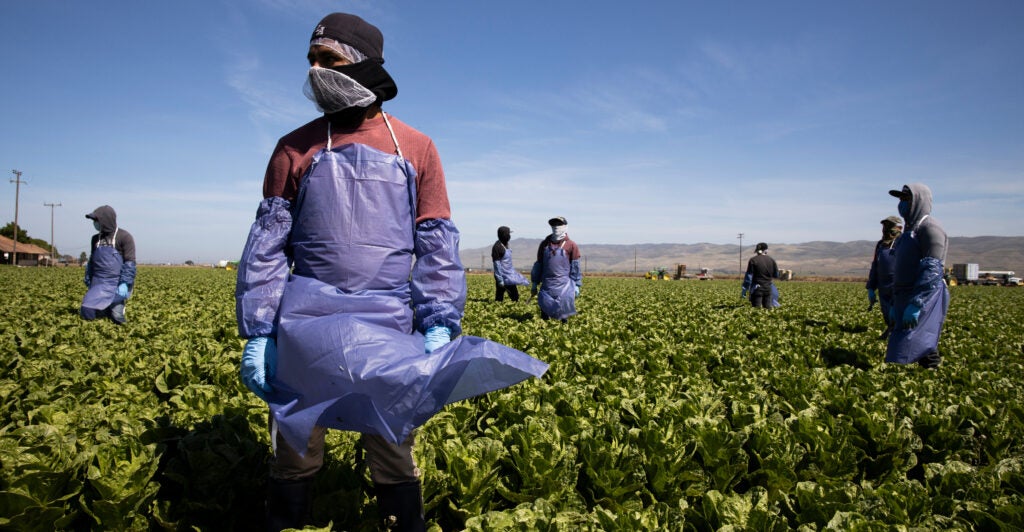The House of Representatives is expected this week to take up one of the most egregious immigration amnesty bills in recent memory, the Farm Workforce Modernization Act.
In 2019, the House passed the bill, but fortunately, it went nowhere in the Senate. Now, the new Congress is taking it up.
The legislation would, among other things:
1) Reward illegal agricultural workers and their employers. The bill doesn’t merely allow illegal agricultural workers to become part of the current temporary H-2A agricultural worker program. It goes way beyond that. The legislation creates a special, new legal pathway to citizenship for illegal agricultural workers in the country. Through the proposed system, some illegal agricultural workers could be eligible for their green cards in as little as four years.
2) Provide amnesty potentially for millions. Nobody can reasonably claim this bill isn’t amnesty. It allows illegal aliens to stay in the country while they are provided an easy pathway to citizenship, rewarding lawbreakers and punishing legal aliens who abide by the rules to become citizens.
Estimates suggest that anywhere from about 50% to 70% of agricultural workers are in this country illegally. There are likely at least 1.5 million illegal agricultural workers in the country. But that’s not the full scope of the amnesty. There’s also the amnesty that would be provided to the workers’ spouses and children.
3) Create a non-solution for farmers. This amnesty presumably exists in large part to help farmers, but at best it would provide a short-term benefit to farmers who have employed illegal workers. Many of the illegal agricultural workers who get this new pathway will almost certainly move off the farm. That movement away from the farm is precisely what happened when the United States granted amnesty to more than 1 million agricultural workers in 1986.
4) Undermine the legal immigration system. This amnesty bill would likely do major harm to the current legal immigration system’s legitimacy and undermine future reform efforts. It sends a message that the nation’s immigration laws should serve as no obstacle to illegally working in the country. It is one thing for Congress to reform legal pathways, but it’s quite another to reward illegal agricultural workers and agricultural employers who have ignored the law altogether.
5) Ignore the pandemic and proper process. When the House passed the agriculture amnesty bill in 2019, there was something consequential that didn’t exist then; namely, COVID-19. It was bad for the House to pass the bill then, and it would be unconscionable to pass it now, especially without carefully considering the impact of the pandemic in connection with this amnesty.
Further, the House is rushing the bill to the floor without the new Congress having a chance to discuss this extreme legislation in committee. If the House is going to grant amnesty to potentially millions of illegal workers and undermine the legal immigration system, then it should at least spend a proper amount of time thinking about the implications of taking such a drastic action.
When considering immigration in agriculture, it isn’t a binary choice between doing nothing and creating this extreme amnesty bill.
There should be a thoughtful dialogue regarding how to improve the legal immigration system without simultaneously undermining its legitimacy. Legislators should take the time to come up with such a solution.
Have an opinion about this article? To sound off, please email letters@DailySignal.com and we will consider publishing your remarks in our regular “We Hear You” feature.
